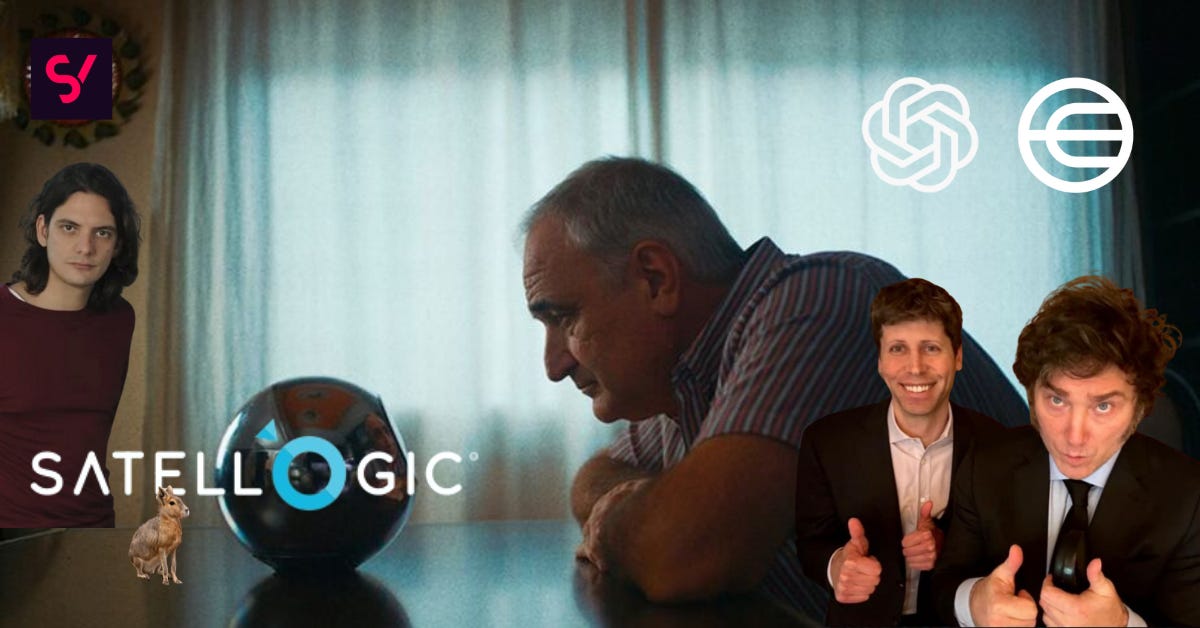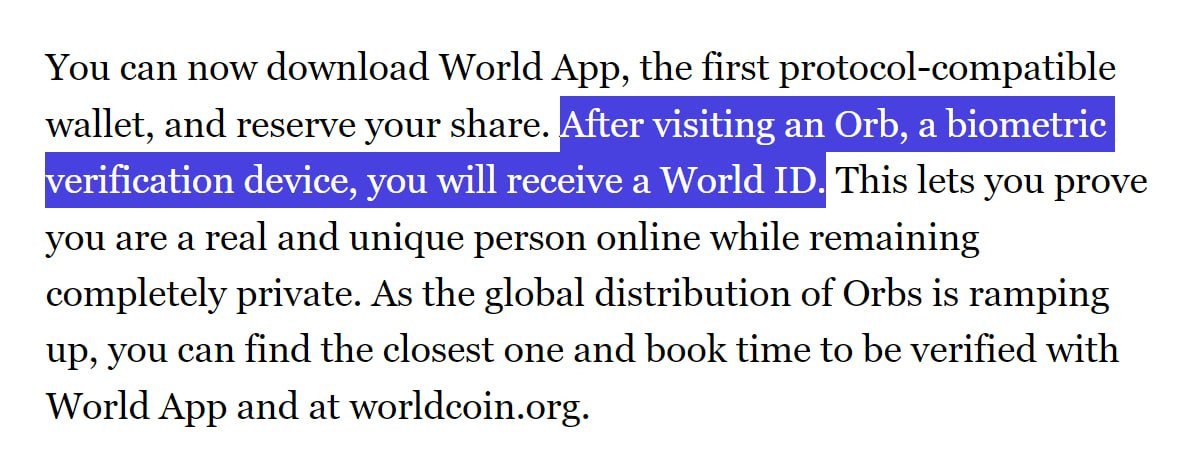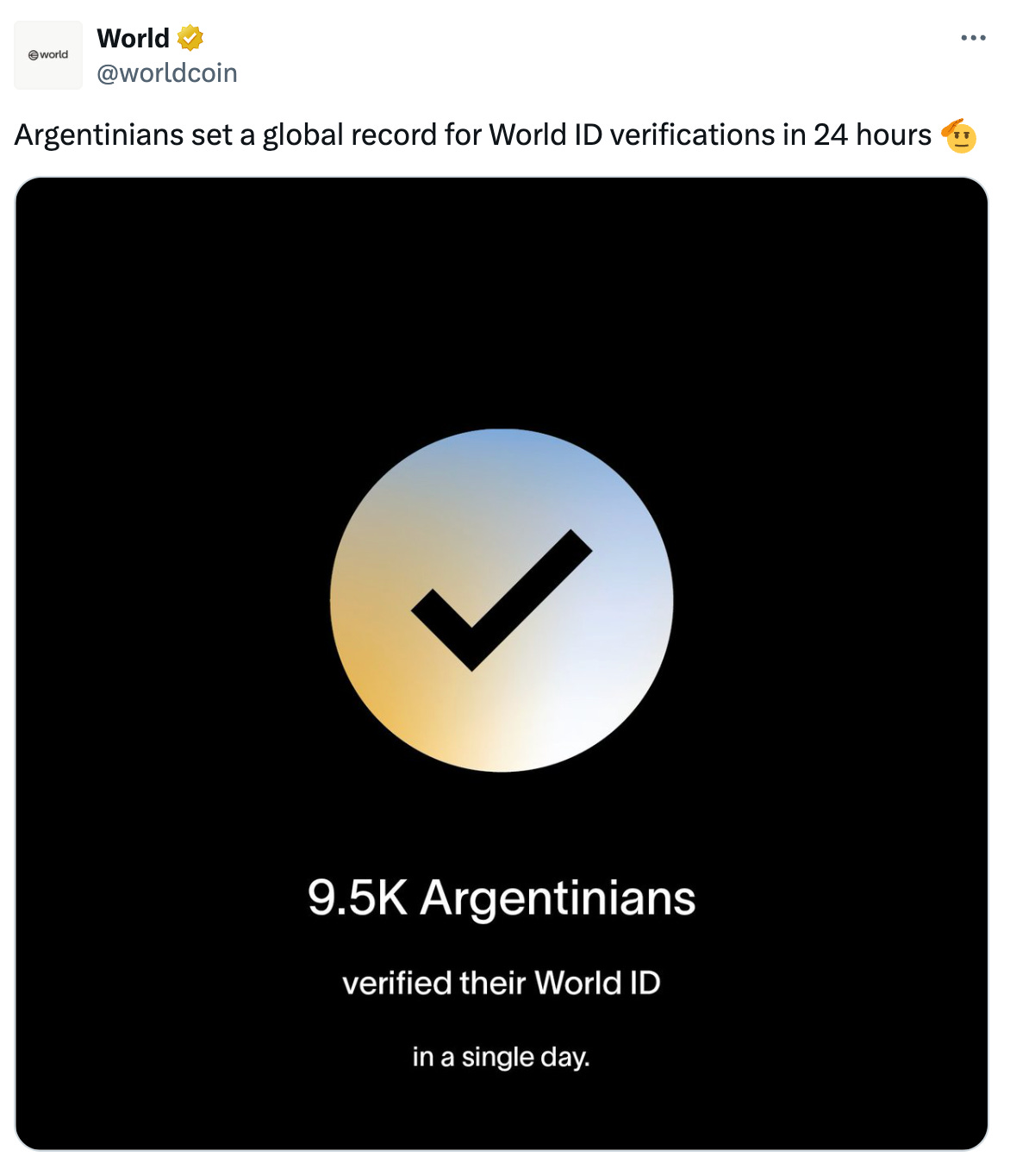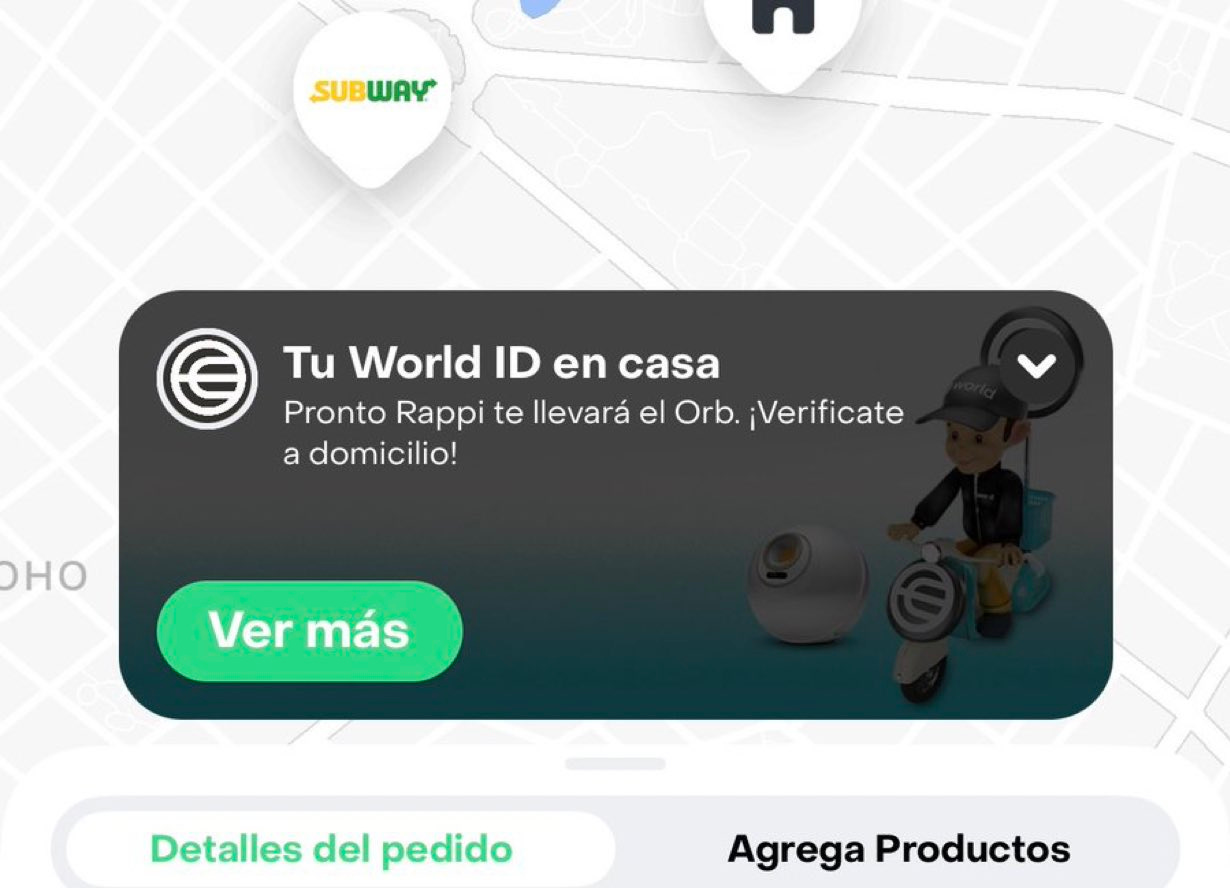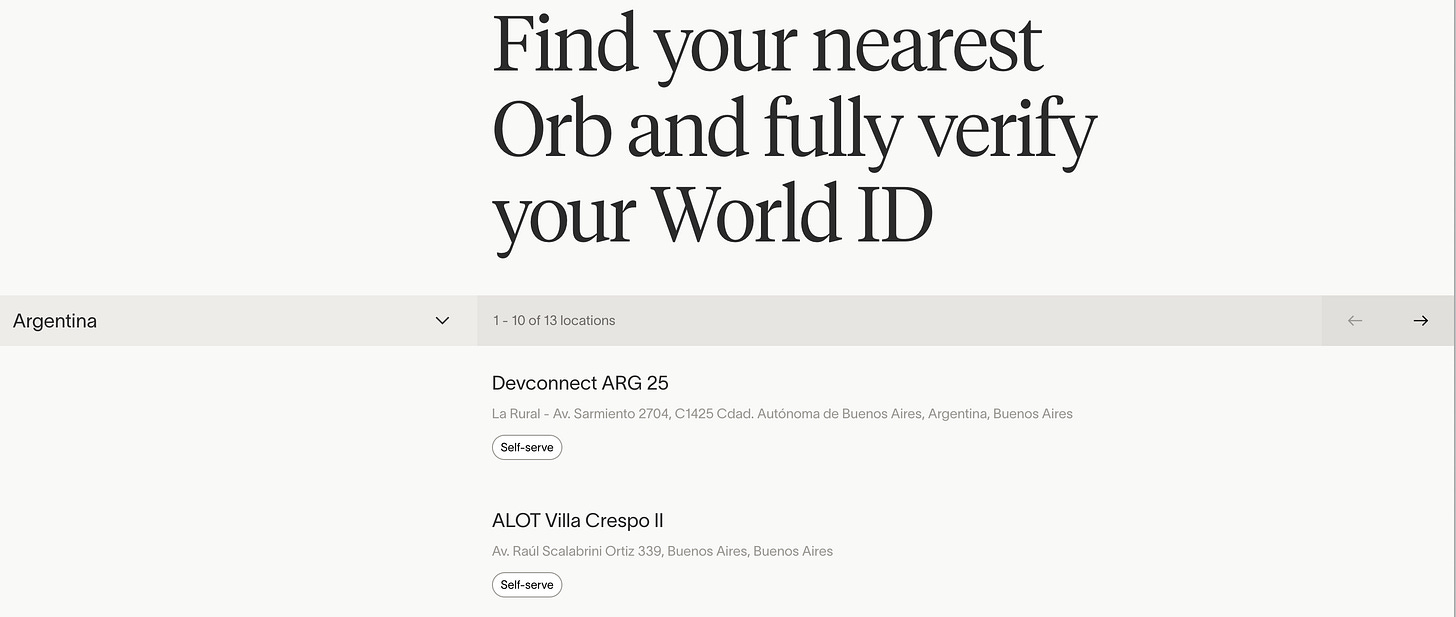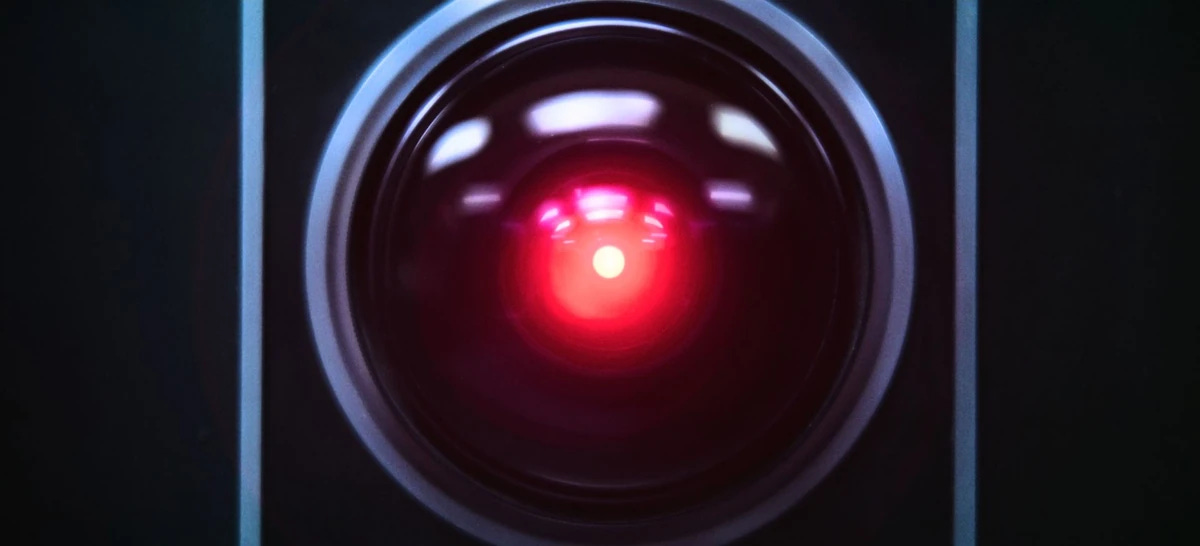Smoke & OpenAI Mirrors in Argentina
The backstory to Sam Altman's latest $25 billion datacenter bet in Patagonia
Welcome Avatar! Right when it would be reasonable to expect the AI valuation bubble should pop any second now, OpenAI decided to throw some more billions into the datacenter fire by announcing a $25 billion project in Patagonia.
First let’s go over Scam Altman’s relationship with Argentina up to date, which has mainly been through his “crypto” startup World, also known as Worldcoin:
Worldcoin is a token that distributes ownership to every human.
Designed for use as the operative cryptocurrency and governance mechanism of World Network.
Where laws allow, Worldcoin may be claimed for free by verified individuals just for being human and participating in World Network.
In July 2023, Worldcoin launched its “financial and identity” network, with the biometric verification device rollout in multiple countries by means of an “Orb”.
After the Orb scan, participants would receive their “World ID”, combined with an airdrop of approximately $30 USD in Worldcoin tokens.
Scanning Argentina
In September 2023 at the height of Minister Sergio Massa’s spending spree and helicopter money in an attempt to win the elections, inflation in Argentina had reached well over triple digits. The electorate was desperate for free candy, and Worldcoin decided to add some to the piñata.
Selling their biometric data to a scam like World in exchange for $30 dollars was a good deal for the 50%+ of the population living below the poverty line. Privacy issues were the least of people’s problems at that point.
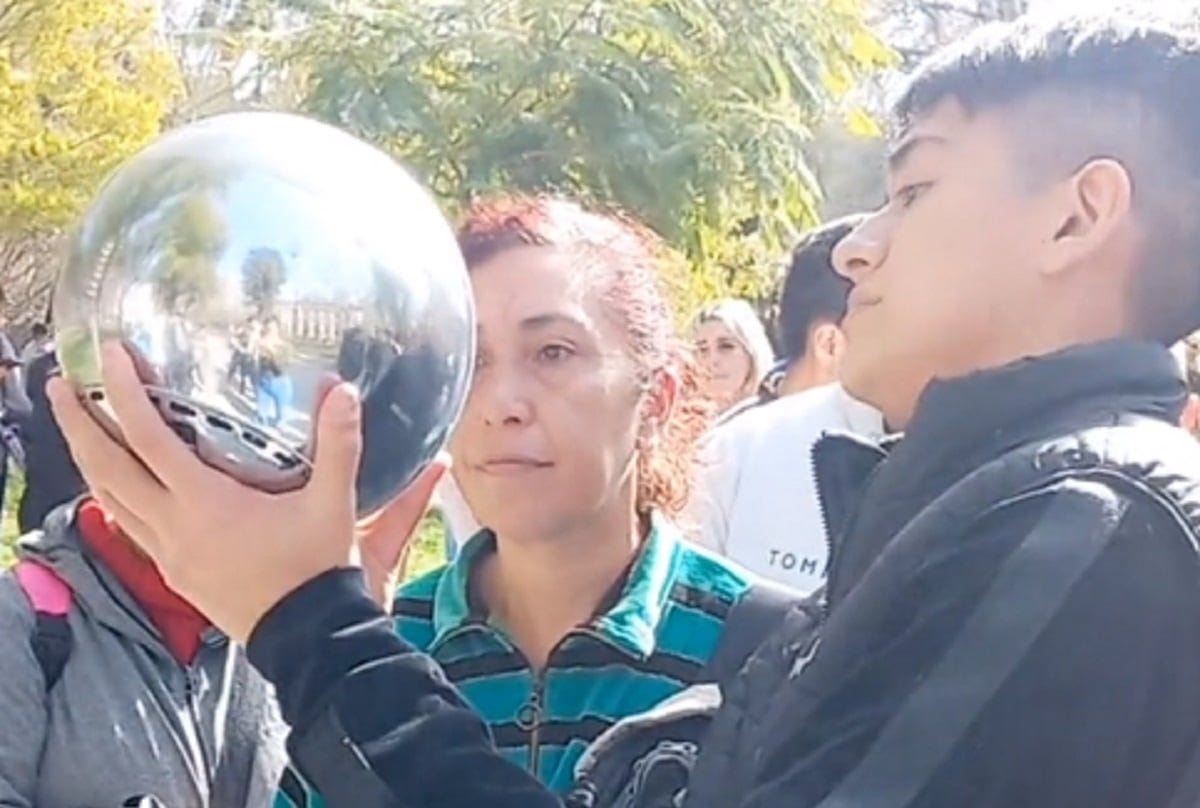
Right after the launch of World’s eyeball scans in Argentina, Altman’s company was proud to announce that Argentina had set a global record for World ID identifications:
Altman understood very well that it would be easiest to gather eyeball data in countries were people are the most desperate, and it is not surprising that Argentina was such a focus point for Sam & Co from the start. The airdrop represented close to 15% of a minimum wage at the time.
In May 2024, the Milei administration was first introduced to Sam Altman and the OpenAI team — a trip to San Francisco where Milei visited multiple big tech firms — through Mat Travizano, who we will return to later.
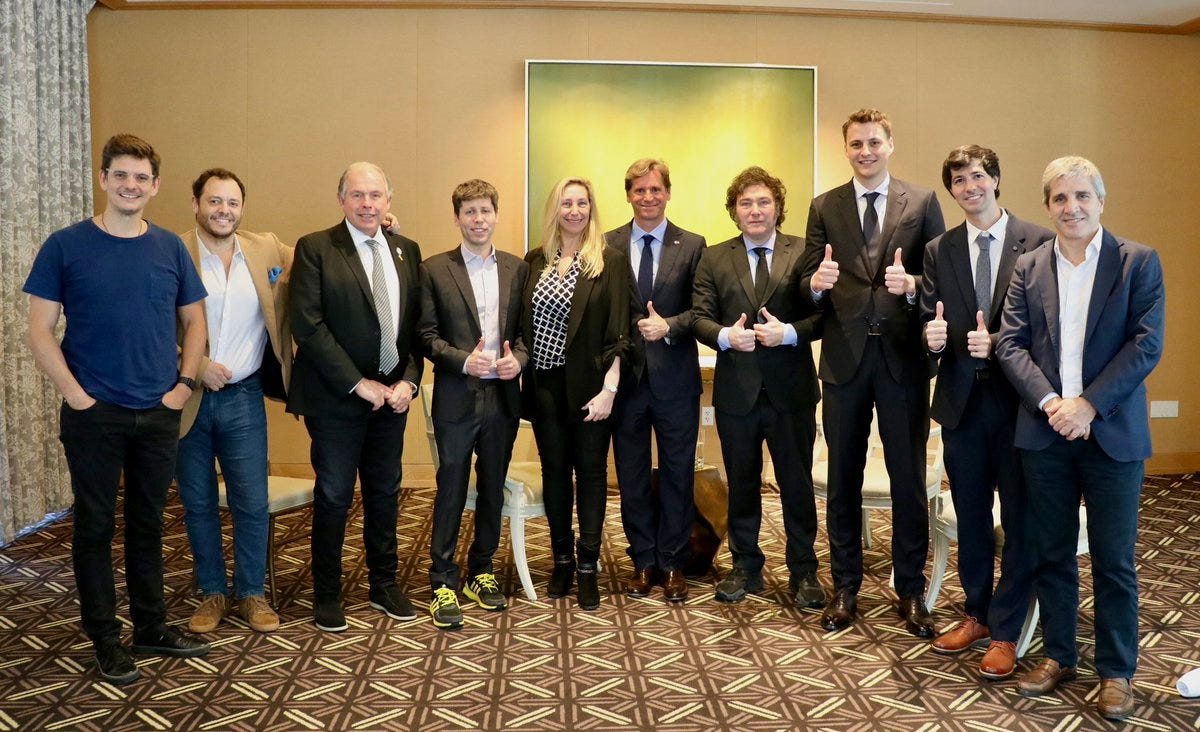
The reason of the visit was not exactly clear at the time, except that all these meetings could eventually result in potential investments in Argentina:
On this new trip to North America, Milei seeks to find investments and propose to Altman and other technology entrepreneurs that Argentina has the potential to become a hub for artificial intelligence.
Meanwhile, Sam Altman kept pushing Worldcoin in Argentina. In that same month, Worldcoin launched the “The Other Leo Messi” campaign, which chronicles the daily life of Lionel Adrián Messi and how his life intertwines with that of the football superstar. The campaign was launched to promote World ID and Worldcoin:
John Patroulis, CMO of Tools for Humanity, the team behind Worldcoin, said:
“As AI makes it increasingly difficult to distinguish between what is real and what is not in the digital world, World ID offers a way to prove you are human online without having to reveal anything more about yourself. World ID verifies that you are a unique human being, as we illustrate through the story of a unique individual in Argentina.”
Yes, that is surely number one on Argentina’s priority list.
Worldcoin went further and it was clear that the company was looking to find access to political layers in order to make sure the laws would allow its biometric data farming on the Argentine population.
In countries like Spain and Portugal, Worldcoin is banned from scanning eyeballs, and in Kenya, the government ordered the suspension of the project and the halting of new user registrations on the World App due to security and data privacy concerns.
The Public Information Access Agency in Argentina already started an investigation into Worldcoins activities in the country, and the storage of biometric data of its citizens. Little later multiple stores with Orb scanners were forced to close premises in the province of Buenos Aires.
Probably hoping to insure a full ban wouldn’t happen in Argentina, in August 2024, Worldcoin arranged a trip together with the Rio de la Plata University Foundation for senior local Buenos Aires province government officials — mostly from the Kirchnerist branch — to the San Francisco headquarters:
“This is the second visit by an Argentine delegation to the San Francisco offices, following Javier Milei’s meeting in May of this year with TFH’s leadership and co-founder Sam Altman. During that meeting, they discussed the advancement of artificial intelligence, how to prepare humanity for AI, and potential investments in Argentina.”
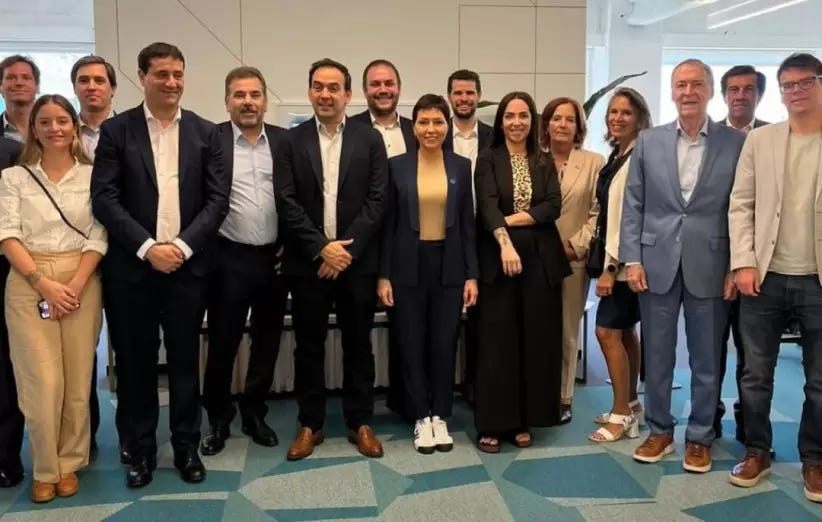
This visit was likely orchestrated more for Worldcoin’s own potential benefit than for that of Argentina, in an attempt to make sure its operations were guaranteed in multiple provinces.
This attempt failed. In that same month, the consumer protection office of province of Buenos Aires slammed Worldcoin with a $200,000,000 peso fine for its abusive contract clauses:
Within the framework of this investigation, the Directorate determined that Worldcoin failed to comply with the duty of information that must prevail in consumer relations, by not providing clear, precise and sufficient information to consumers at the time of scanning their faces. […]
The Directorate declared several clauses in Worldcoin’s terms and conditions of use abusive, ordered their removal, and imposed a fine of 832 times the minimum wage, equivalent to $194,950,179.84 pesos. The Directorate also ordered Worldcoin to publish the ruling.
Additionally, Worldcoin was forced to allow users to delete their biometric data from the companies databases if they wanted to. Even though a full ban hasn’t happened yet on a country level, less Orbs have been spotted since that moment, and the /humano-unico link on the Worldcoin website, which was tailored to Argentina, now redirects to the home page.
Close to the end of 2024, Worldcoin started planning on rolling out delivery eyeball verification through Rappi, an iniciative that was later abandoned after Worldcoin started to run into legal problems in multiple provinces:
Despite these biometric headwinds in some provinces, Worldcoin is still active in Argentina with multiple Orb locations in the city of Buenos Aires:
Worldcoin has also launched a referral program, where “community operators” can order an Orb for $100 to start scanning the biometrics of their friends and family:
For each unique human who verifies their World ID with your Orb, you will earn WLD tokens.
Of course, the retail Orb’s fine print has many disclaimers, but the intention is clear:
The Orb is currently under development. All specifications, features, and pricing details are subject to change. Estimated delivery dates are not guaranteed and may be impacted by production delays, regulatory approvals, or other unforeseen factors. This pre-order does not constitute a final purchase or rental agreement.
Not sure if it is just this Patagonian rodent, but everything around Worldcoin feels extremely dystopian and off. The amount of potential horror storylines around the concept of Sam Altman being in charge of a database of third-world biometrics data while also managing one of the most used LLMs at OpenAi would cause Stanley Kubrick sleepless nights.
Below we’ll go over the track record of the OpenAi datacenter stakeholders on the ground in Argentina, and why it is reasonable to have legitimate doubts on the datacenter’s viability given their performance in capital markets thus far. Time to open up this Orb and dig in.


